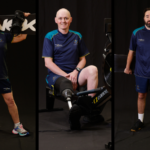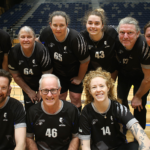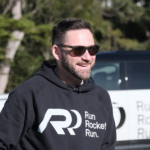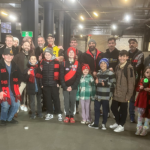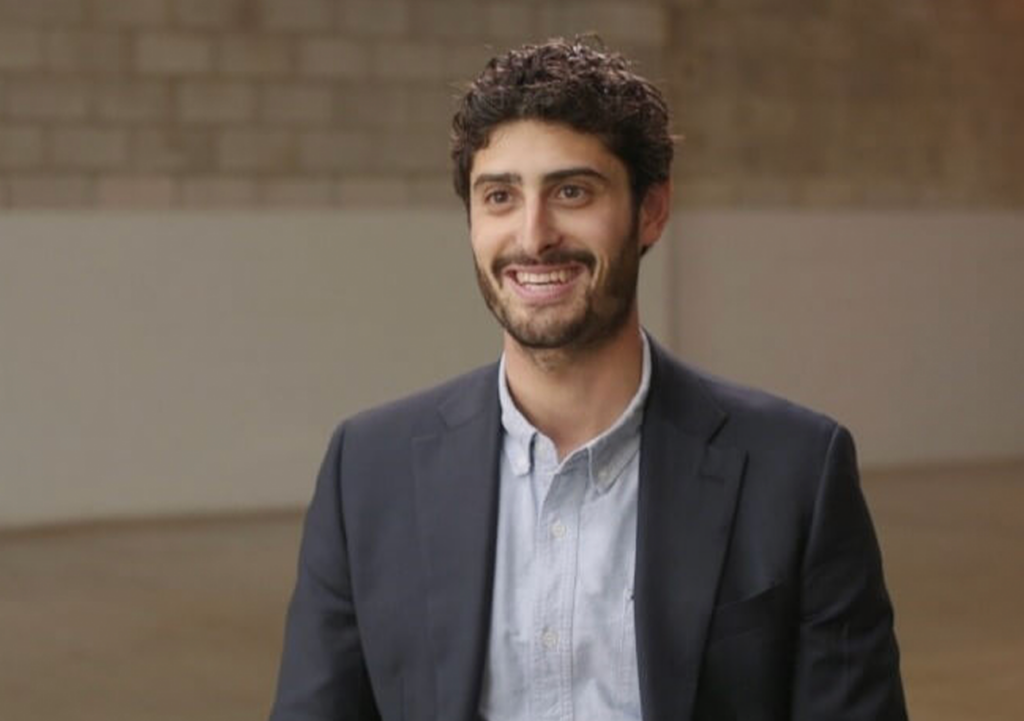
VSA to show why we need to get active
We all know the power of physical activity.
Getting active keeps us healthy. It’s motivating and connects us with our local community.
But imagine trying to make the case for physical activity on paper. Sound like a daunting assignment? We thought so!
With that in mind, Veteran Sport Australia’s fortunate and privileged to announce that we’ve brought together a group of experts to do just that!
Veterans and sport – a match made in heaven
VSA has appointed a Research Advisory Committee with the sole focus of supporting veterans
The group’s first meeting was held on 14 October and the enthusiasm and drive in the room was clear from the get-go.
The committee’s made up of academics and experts, working across the areas of sport, health and mental wellbeing. All have generously volunteered their time and energy to help lead VSA’s research strategy. The committee aims to clearly set out all of the benefits – mental, physical, social and economic – of meaningful physical activity for veterans and their families.
Dr Simon Rosenbaum [pictured above] is a member of the committee and knows the difference that physical activity can make in the lives of veterans. Simon’s an exercise physiologist at the School of Psychiatry at the University of New South Wales. His work focuses on the prevention and management of various mental health disorders. He’s also a National Director of Exercise and Sports Science Australia and is among the most experienced exercise physiologists dedicated to mental health in Australia.
“We need to move away from the idea that physical activity is just for weight loss or improving physical health,” said Simon. “The power of sport extends so much further than just the physical process of participating. That’s something that our veteran community instinctively understands.
“There’s an overwhelming body of evidence out there around the role that exercise and physical activity can play in reducing symptoms and improving the physical and mental health of people living with mental illness. If you’ve got a CEO living in the Eastern Suburbs of Sydney or a refugee in a camp in Bangladesh, the way they respond to physical activity in terms of the mental health benefits are actually identical; they’re the exact same.”
A huge step forward for our community
The committee will play a crucial role in:
- Bringing together and reviewing existing research into meaningful physical activity;
- Shaping VSA’s approach to working with veterans and measuring our success; and
- Identifying future research opportunities.
Michael Hartung, General Manager of VSA, believes that bringing this group of individuals together at this time is a crucial step forward for the entire veteran community. Having held leadership roles with the Australian Paralympic Committee and overseeing the delivery of the Invictus Games Sydney 2018, Michael’s seen firsthand the positive impact sport and being physically active can have on one’s health and wellbeing.
“Being able to tangibly show the difference that getting involved in sport can make for veterans and their families is just so important,” said Michael. “I think we all know it, but we need to be able to clearly set out the case that supporting veterans getting active is something that we should all invest in and support – from governments right through to grassroots sporting clubs.
“With statistics showing that 46% of veterans leaving the ADF will meet diagnostic criteria for a mental health disorder[1], it’s important that we can measure the impact sport can have in addressing this major issue and other issues effecting the veteran population.
“It really is a privilege to work with such a talented and committed group of experts. have no doubt that we’re going to make huge progress together over the coming months and years. This really is a game-changer.”
Meet the team
The committee is made up of the following experts, who VSA cannot
thank enough for their time, energy and commitment:
- Dr Anne Grunseit, Senior Research Fellow, Sydney School of Public Health, University of Sydney and Senior Research Fellow, Evaluation Analyst at The Australian Prevention Partnership Centre
- Ms Kristi Heffernan, Senior Clinical Specialist, Centre for Posttraumatic Mental Health at Phoenix Australia
- Ms Karen May, Associate Director, Australian Centre of Excellence for PTS at The Road Home
- Ms Julie Pert, Director, NSW/ACT at Open Arms
- Dr Lindsey Reece, Senior Research Fellow and Academic Lead SPRINTER at the Prevention Research Collaboration in the School of Public Health at the University of Sydney
- Dr Simon Rosenbaum, Senior Research Fellow, School of Psychiatry at the University of New South Wales, honorary fellow at the Black Dog Institute and National Director of Exercise Sports Science Australia
- Dr Miranda Van Hooff, Director of Research, Centre for Traumatic Stress Studies at the University of Adelaide
- Dr Anna Lewis, Squadron Leader, Royal Australian Air Force Specialist Reserve, Principal Research Investigator ADF Adaptive Sports Program
